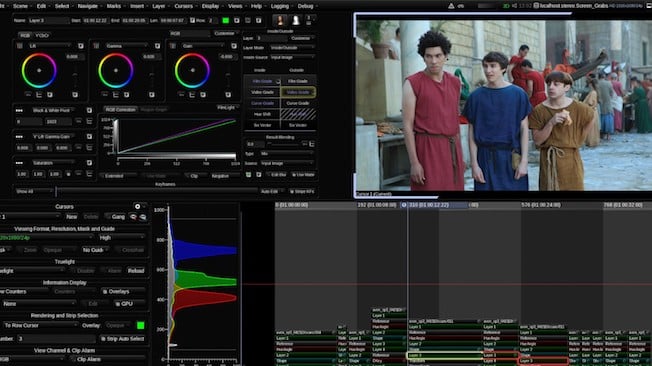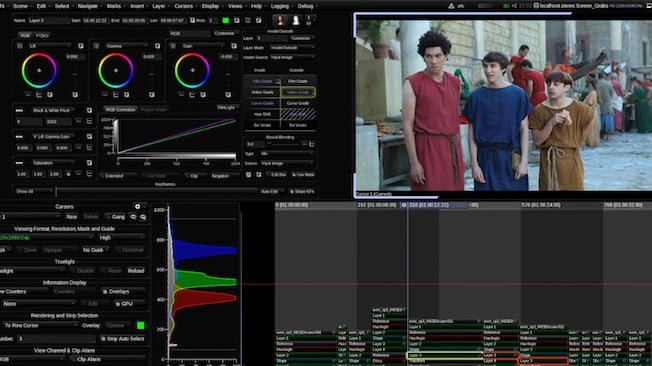
 The Baselight UI: Coming soon to a Mac near you for, well, for free
The Baselight UI: Coming soon to a Mac near you for, well, for free
FilmLight is looking to grow its user base with a new free edition which is at turns more curated and more involved than its rivals. By Matt Gregory
Grading used to be called a dark art – and not just because rock star colourists beavered away in windowless suites on extremely expensive hardware. Grading still retains a cache as a craft to entice producers to place more of their routine work within a facility. Talk of ‘vignettes’ and interpreting a client’s vague direction have given colourist’s clout. Well, the last vestiges of this mystery may be stripped away with a new initiative designed to train those wanting to become a professional colourist.
At NAB, FilmLight will preview Baselight STUDENT, a software-only macOS application for training Baselight colourists and assistants. It’s free too, although anyone keen must register and be eligible to become a part of the Baselight Learning Programme to obtain a licence.
“We’ve had growing requests from freelance colourists and creative artists for this product,” explains FilmLight founder and CEO, Steve Chapman. “We don’t just want to hand out a free piece of software and walk away. We want to work with training institutions and creatives to make sure that they have the right resources and support to achieve their goals.”
Baselight STUDENT is described as a fully functional version of FilmLight’s Baselight software – with GPU rendering. This includes support for an optional control surface, like FilmLight’s Slate panel, and even SDI monitoring for a full grading suite experience.
The principle limitation is that the application is restricted to render out only H.264 movies or JPEG images. With no watermarking, this means that Baselight STUDENT can be used to create academic-year projects within the limitation of the delivery formats.
“Along with conform capability, colour space handling, format editing and the ability to render both image sequences and movie files, this also makes the application the ideal tool to learn how to start a career as a professional colourist assistant,” suggests Chapman.
The company says it will initially talk to participants to assess their individual needs and then provide them with a free licence for the appropriate length of time, along with practice material they can use to get up to speed.
“We’ve reached pretty far with our team of in-house trainers but it just isn’t physically possible for everyone to access face-to-face training with FilmLight product specialists,” says Chapman.
FilmLight will also develop regular video tutorials and webinars for members of the Baselight Learning Programme.
While the skills of top colourists are not in doubt and remain as in-demand as ever to retain the vision of the DP and director from set to screen, grading tech itself has become commoditised. Blackmagic Design has led the charge, introducing entry level versions of Da Vinci Resolve for free a couple of years ago.
Cultivating an army of Baselight users is one way FilmLight can fight back.
It will also be hoping to entice users with version 5.0 software for its flagship Baselight system which covers all Baselight Editions, to Daylight and the new on-set application, Prelight.
V 5.0 introduces Base Grade for accurately mimicking the way the eye sees colour and adds new features such as paint, perspective tracking, warping, depth keying and relighting for more VFX-oriented workflows.
Tags: Post & VFX


Comments